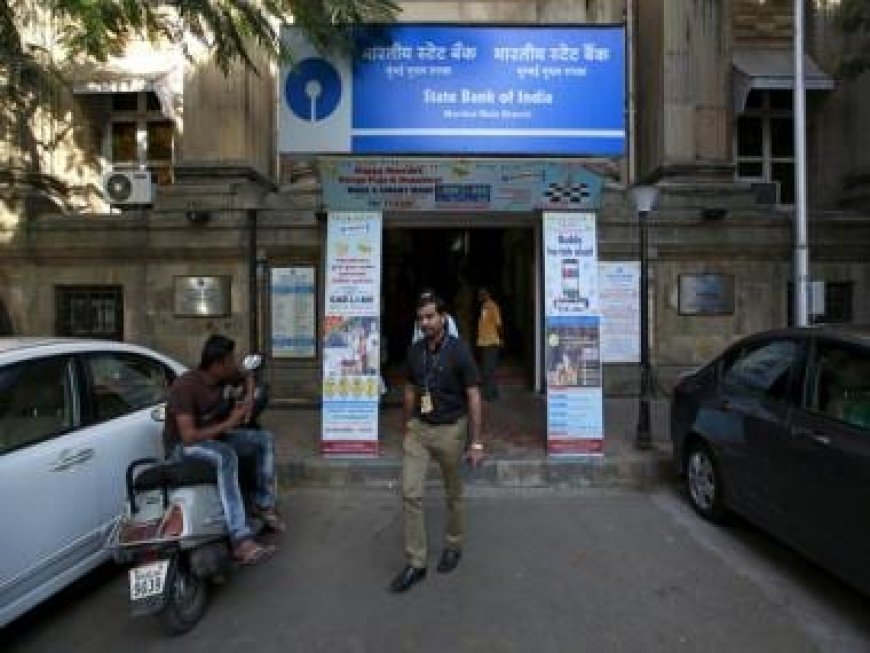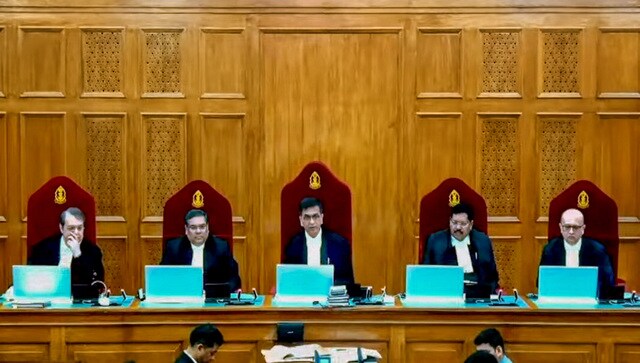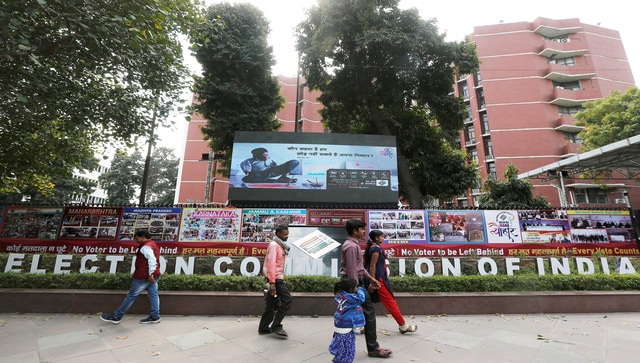SC verdict on electoral bonds: What next for SBI? Will we know the names of donors soon?
SC verdict on electoral bonds: What next for SBI? Will we know the names of donors soon?

The Supreme Court of India has struck down the Central government’s electoral bonds scheme that allowed anonymous political funding, deeming it “unconstitutional”. In the landmark judgement on Thursday (15 February), the top court ruled that the scheme violated citizens’ right to information and Article 19 (1)(a) of the Constitution which guarantees the right to freedom of speech and expression.
A five-judge Constitution bench headed by Chief Justice of India (CJI) DY Chandrachud also directed the State Bank of India (SBI) to stop issuing electoral bonds immediately. The government-owned bank is the sole entity to issue electoral bonds through its 29 authorised branches across different states.
What has the Supreme Court told SBI? What to expect next? Let’s take a closer look.
What is electoral bond scheme?
An electoral bond is a bearer instrument like a promissory note that can be purchased by citizens or entities to donate funds to political parties. The Centre finalised the electoral bonds scheme in January 2018 to enhance transparency and stop the flow of black money into political funding.
However, the scheme was criticised by several quarters over the anonymous donations.
Critics of the scheme pointed out that the Centre removed the limit on the amount companies could donate to political parties – 7.5 per cent of their average net profits in the previous three years – through amendments to the Companies Act, 2013, paving the way for unlimited funding from firms, according to Indian Express.
Now, the apex court has scrapped the controversial scheme, calling it arbitrary. The bench said the scheme could lead to quid pro quo arrangements between political parties and companies.

“Electoral bonds scheme has to be struck down as unconstitutional. It violates the right to information of citizens, about possible quid pro quo,” the court said in its verdict.
“Financial contributions to political parties are made for two parties – for support to a political party, or contribution may be way of quid pro quo,” the five-judge bench noted, as per NDTV.
The top court’s important verdict comes just months ahead of the crucial Lok Sabha elections.
SBI to furnish elector bond donors’ details
The apex court in its verdict ordered India’s largest lender to submit details of electoral bonds purchased since 12 April 2019 to the Election Commission of India (ECI).
These details, including the date of purchase of the bonds, name of the buyer, denomination, and information of political parties that have received donations through the scheme, have to be submitted to the poll body by 6 March 2024, reported NDTV.
The bank will also have to provide details of each encashed bond, the dates of encashment and the amount.
“Electoral Bonds which are within the validity period of 15 days but which have not been encashed by the political parties yet shall be returned by the political party to the purchaser. The issuing bank shall then refund the amount to the purchaser’s account,” Economic Times cited the court order as saying.
Speaking to Business Standard, a top official of the SBI said the bank will adhere to the Supreme Court’s ruling and share details with the election commission. “The process has been laid out that we will disclose the details to the election commission and they will host it on their site. We will have to follow the process that has been laid out by the SC”.
“We have all the information…just that it is very confidential, only the respective branches have the data,” the official said requesting anonymity.
The SBI official also said refunding the amount of the uncashed bonds by political parties is not an issue as the bank has the information of the buyers, Business Standard reported.
According to Indian Express, the SBI possesses the names, Aadhaar, and PAN card details of those who bought the electoral bonds.
What will the ECI do?
After the ECI gets the details from the SBI, the poll body has to publish the information on its website by 13 March 2024 to make it available to the public.
This means the public could know the names of electoral bond donors next month.
“We haven’t yet had the opportunity to read the order in detail but it’s abundantly clear to us that SBI will have to share the names of those who purchased electoral bonds. So there’s no doubt about it,” an EC official told Indian Express.
It is not yet known whether the SBI data would be presented in a way that helps immediately match the bond buyer to the political party they donated to.

“Irrespective of whether the format is reader-friendly or not, finding out the identity of the donor and recipient will not be impossible. It may just mean a lot of work for people interested in finding out the same,” the poll body official was quoted as saying by the newspaper.
The government told Parliament recently that Rs 16,518 crore worth of electoral bonds were sold between 2018 to January 2024. About 94 per cent of these bonds were in Rs 1 crore denomination, indicating that corporates and high net-worth individuals could have been the donors, reported Indian Express.
As per a report published by the Association of Democratic Reforms (ADR), which was one of the petitioners in the electoral bonds case before the Supreme Court, over 52 per cent of the Bharatiya Janata Party’s (BJP) total donations between 2018 and 2023 came from electoral bonds worth Rs 5,271.97 crore.
The saffron party is also the biggest receiver of electoral bond donations. It got nearly Rs 1,300 crore in 2022-23 through electoral bonds, seven times more than what the Congress, India’s main Opposition party, received during that period.
With inputs from agencies
What's Your Reaction?



























































